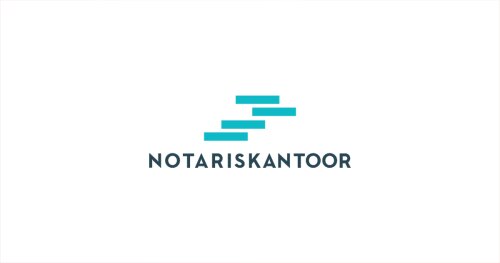Best Acquisition / Leveraged Finance Lawyers in Belgium
Share your needs with us, get contacted by law firms.
Free. Takes 2 min.
Or refine your search by selecting a city:
List of the best lawyers in Belgium
About Acquisition / Leveraged Finance Law in Belgium
Acquisition and leveraged finance law in Belgium refers to the legal and financial frameworks that support the funding of acquisitions, mergers, and company buyouts, often using a significant proportion of borrowed money. This area of law focuses on ensuring that acquisition and debt structures comply with both Belgian regulations and broader European legal standards. Acquisition finance often involves banks, private equity funds, and other financial institutions providing loans or credit facilities for purchasing a business. Leveraged finance specifically refers to transactions where debt is used to amplify the purchasing power, potentially increasing returns but also risks.
Belgium has a robust market for acquisition and leveraged finance, especially within its vibrant private equity and M&A scene. The Belgian legal environment strives to balance creditor and debtor interests while providing clear rules for enforceability, financial assistance, guarantees, and security packages.
Why You May Need a Lawyer
There are several scenarios where legal advice or representation is essential in the context of acquisition and leveraged finance in Belgium:
- Attempting a company buyout or merger and needing guidance on structuring the deal and securing finance.
- Seeking to arrange a leveraged finance transaction, which can be complex and subject to regulatory constraints.
- Drafting, negotiating, or reviewing loan agreements, security documents, or intercreditor arrangements.
- Performing due diligence to uncover legal and financial risks in the target business.
- Ensuring compliance with Belgian and EU financial assistance rules, especially regarding guarantees and security interests provided by the target company.
- Understanding tax implications for financing structures and cross-border deals.
- Dealing with insolvency risks or enforcement of security if a borrower defaults.
- Addressing antitrust or regulatory issues connected to large acquisitions or mergers.
A lawyer specializing in acquisition and leveraged finance can help navigate these complexities, protect your interests, and ensure a smoother, legally compliant transaction.
Local Laws Overview
Belgium’s legal system, influenced by both national and European Union regulations, sets out specific legal requirements for acquisition and leveraged finance transactions. Some of the most relevant local legal aspects include:
- Financial Assistance Rules: The Belgian Companies Code restricts how a target company can provide financial assistance (through loans, guarantees, or security) for the acquisition of its own shares. Exceptions exist, but strict procedures and conditions must be met.
- Security Interests: The law provides mechanisms for taking security over a range of assets (shares, receivables, property, etc.), but documentation must be carefully drafted to ensure enforceability.
- Contractual Freedom: Belgian law allows parties significant freedom in negotiating contracts, but certain mandatory provisions cannot be disregarded.
- Taxation: Belgian tax law influences the structuring of finance transactions, including limitations on the deductibility of interest and the effect of the so-called "thin capitalization" rules.
- Insolvency and Enforcement: Belgian insolvency law impacts lender rights and the enforcement of security in the case of borrower default, especially since recent reforms aligning with EU standards.
- Data Protection and Regulatory Issues: M&A transactions, especially with financial institutions, must comply with privacy, anti-money laundering, and other regulatory requirements.
Frequently Asked Questions
What is acquisition finance?
Acquisition finance is the arrangement of debt and/or equity funding to support the purchase of a business or significant assets, usually enabling buyers to proceed without providing the full purchase price upfront.
What does "leveraged" mean in leveraged finance?
Leveraged finance involves using significant borrowed funds, often secured against the assets or shares of the business being acquired, with the expectation that future cash flows will repay the debt.
Are there limits on companies giving guarantees or security for acquisition finance?
Yes, under Belgian law, a company cannot freely provide guarantees or security for loans taken to acquire its own shares. Such transactions are regulated by the financial assistance rules, requiring strict compliance and sometimes shareholder approval.
What types of security can be provided in acquisition finance deals in Belgium?
Security can be taken over shares, cash accounts, receivables, intellectual property, and real estate. The specifics depend on the assets involved and the contractual arrangements.
Why is due diligence important in acquisition financing?
Due diligence helps identify potential legal, financial, and commercial risks in the target company, which is critical for both lenders and buyers to determine the viability of the transaction and set appropriate terms.
What role do banks play in leveraged finance?
Banks often act as arrangers, underwriters, and lenders for leverage finance deals, providing syndicated loans or credit facilities and helping structure the financing to comply with legal requirements.
How does Belgian insolvency law affect acquisition finance?
Insolvency law determines the order of priority and enforcement options for creditors if the borrower defaults. Lenders need to ensure their securities are valid and enforceable to protect their interests.
What are the main tax considerations in acquisition finance?
Taxation of interest payments, deductibility limitations, thin capitalization rules, and the impact of cross border structures are key considerations that can influence the overall cost and structure of acquisition financing.
Can foreign entities participate in acquisition finance transactions in Belgium?
Yes, foreign entities, investors, and lenders can participate, but must comply with Belgian legal, tax, and regulatory requirements, including EU standards when applicable.
When should I engage a specialized lawyer?
It is recommended to contact a legal expert as soon as you start planning an acquisition or leveraged financing transaction, so you can identify legal constraints early and structure your deal efficiently and compliantly.
Additional Resources
Several governmental agencies and organizations can provide helpful information or resources related to acquisition and leveraged finance in Belgium:
- Federation of Enterprises in Belgium (FEB/VBO) - provides information on economic, legal, and financial issues.
- Belgian Financial Services and Markets Authority (FSMA) - offers regulations and guidelines for financial markets and intermediaries.
- National Bank of Belgium (NBB) - the regulator for banking and financial stability, with information on credit and financial laws.
- Belgian Ministry of Finance - for insights on tax-related aspects and policy developments.
- Belgian Center for Company Law - publishes commentary and analysis on corporate legislation, including acquisition and finance law updates.
Next Steps
If you are considering an acquisition or leveraging finance in Belgium, proceed as follows:
- Define your business goals and identify your prospective transaction structure.
- Engage with a qualified lawyer or law firm specializing in acquisition and leveraged finance law in Belgium.
- Prepare all necessary documentation and share relevant information with your legal advisor for a thorough due diligence review.
- Work with your lawyer to assess financing options, structure the transaction, and ensure compliance with Belgian financial and corporate law.
- Negotiate terms with financiers, sellers, or partners with legal guidance to safeguard your interests.
- Stay informed about regulatory or taxation issues that could affect your transaction.
Professional legal advice is invaluable in these complex transactions and can make the difference between a successful deal and unforeseen risks or liabilities.
Lawzana helps you find the best lawyers and law firms in Belgium through a curated and pre-screened list of qualified legal professionals. Our platform offers rankings and detailed profiles of attorneys and law firms, allowing you to compare based on practice areas, including Acquisition / Leveraged Finance, experience, and client feedback.
Each profile includes a description of the firm's areas of practice, client reviews, team members and partners, year of establishment, spoken languages, office locations, contact information, social media presence, and any published articles or resources. Most firms on our platform speak English and are experienced in both local and international legal matters.
Get a quote from top-rated law firms in Belgium — quickly, securely, and without unnecessary hassle.
Disclaimer:
The information provided on this page is for general informational purposes only and does not constitute legal advice. While we strive to ensure the accuracy and relevance of the content, legal information may change over time, and interpretations of the law can vary. You should always consult with a qualified legal professional for advice specific to your situation.
We disclaim all liability for actions taken or not taken based on the content of this page. If you believe any information is incorrect or outdated, please contact us, and we will review and update it where appropriate.
Browse acquisition / leveraged finance law firms by city in Belgium
Refine your search by selecting a city.
















